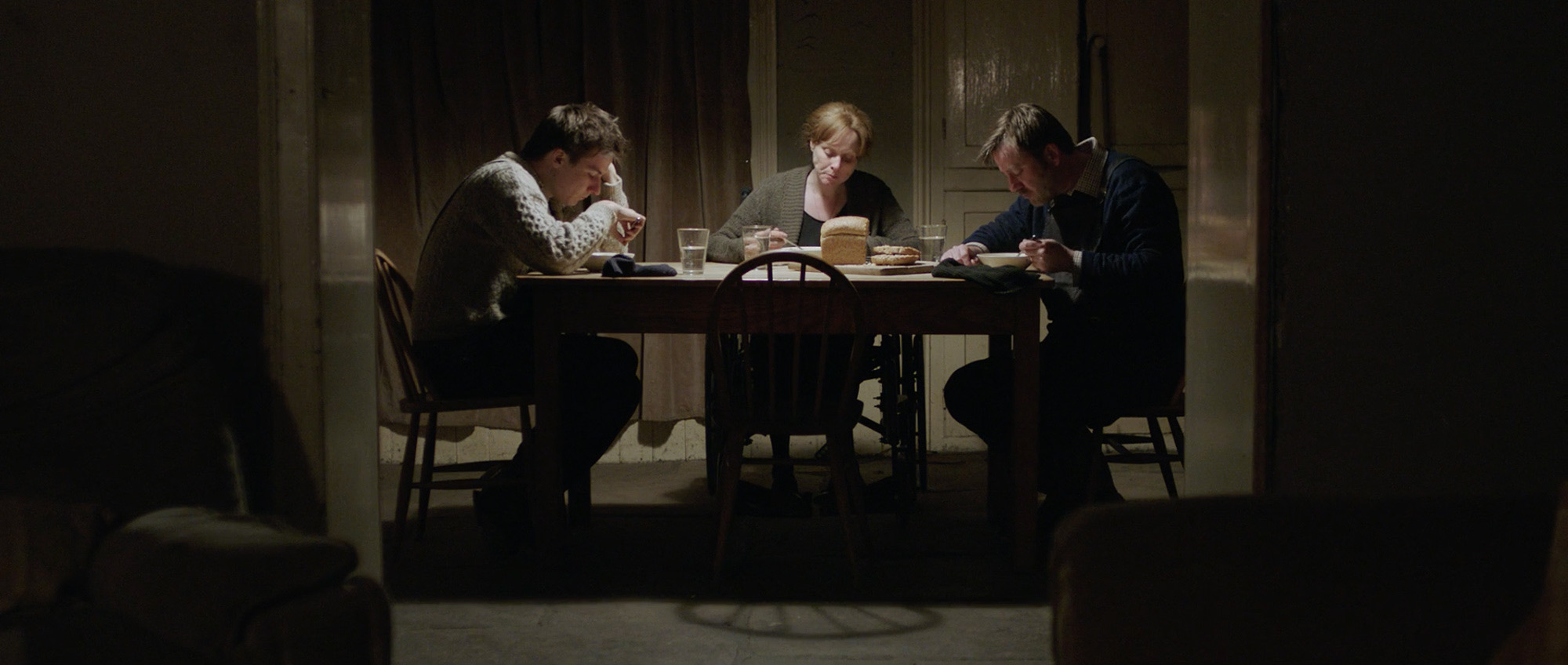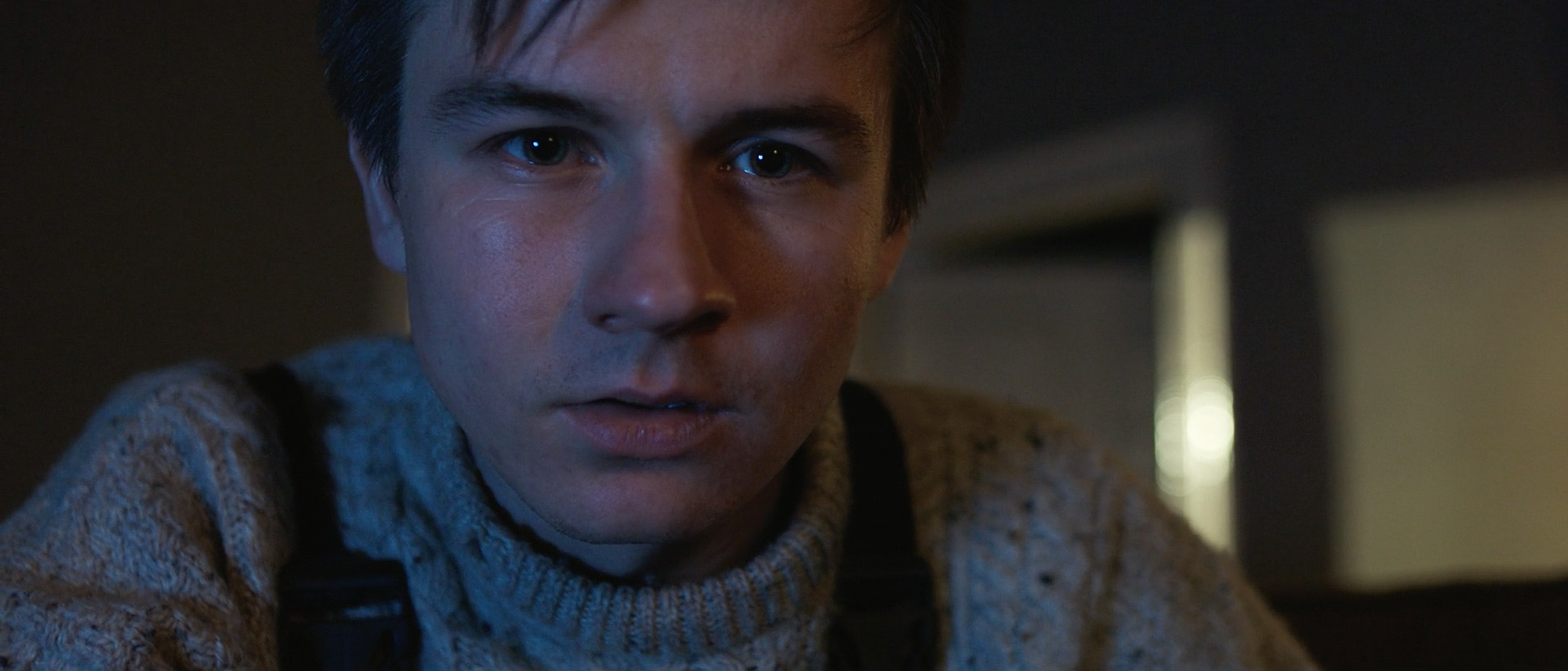
The beautiful component of what makes Lambing Season work is that you can feel that Director Jack Benjamin Gill is telling an honest story. As he attests to in our interview, he knows the world in which the characters live and invites the audience in. He crafts a terrific performance from Scott Chambers, who is already building up an impressive filmography, and delivers an uncomfortable tale which is – I’m sure he’d be happy with me putting it this way – Dark, dark and more dark! Below, Jack shares how the northern setting and his personal experiences grounded this compelling family thriller.
How did the idea for Lambing Season come about?
The logline was essentially a light-bulb moment. I overheard a friend discussing a news story about a missing child case and that was it. It captured my imagination immediately and I knew the potential plot meant I could deliver an exciting and meaningful genre film. What’s interesting though, is that the idea was never separate from North Yorkshire and the world of farming it depicts. The connection was instantaneous. Lambing Season was always set on a secluded North Yorkshire hill farm, in the midst of lambing season. It was a completely organic decision and the perfect thematic world to ground the film. Birth, death, ownership, adoption – it was all there. I was able to take a high concept thriller and let it loose in world that I knew I could deliver with some truth. I’m a writer/director from the regional UK and to make a genre film of this nature, right outside my hometown, felt like the emergence of my voice as a filmmaker. I’d never been more comfortable living and breathing inside a story.
Scott Chambers is such a great, young talent, could you talk about working with him to develop the character of Joe?
Scott is most recognisable for his role in Chicken, which I actually hadn’t seen when we cast him as Joe. I cast him purely based on a show reel piece, which I thought had the emotional constraint he later delivered in the final scene of the film. I’ve since caught Chicken on MUBI and I can’t believe how lucky we were to have him involved. What a performance. It was a great privilege to have worked with all the cast on this one. Scott, Jennifer and Graeme are completely central to the film.

Lambing Season was going to live or die based on their performances and their portrayed family dynamic. My input in their character development was mostly to do with the world the characters inhabited. I asked Scott and Graeme to head out and handle some livestock. I wanted them to grab a ewe by the horns and handle a lamb with confidence. In the end, Graeme delivered the lamb in the opening scene himself.
What were your visual inspirations for the look of Lambing Season and how did they inform the aesthetic?
It’s difficult to explain how the aesthetic for Lambing Season was achieved. For a start, we tried to be as truthful as possible in our depiction of farming and the season. We filmed on a working hill farm in the North Yorkshire Dales, we dealt with real livestock, and we birthed a real lamb on set. But it’s more about an inherent connection I have to the landscape. I had a very specific, claustrophobic, and yet expanse, view of North Yorkshire, which I was constantly trying to articulate during development and production.
I was able to take a high concept thriller and let it loose in world that I knew I could deliver with some truth.
In my mind’s eye, I could always see the unique cinematic potential of the region in the context of the story and how it could emerge as its own character within the film. Lambing Season’s aesthetic essentially boils down to my upbringing. I’m from the region. The North Yorkshire of Lambing Season is somehow under my skin and in the end it just had to be filmed to be seen.
https://vimeo.com/201570690
A shot which I found really striking was when Abel tackles Joe and they talk under the night sky, what was it like constructing that scene? Could you talk about your directorial choices there?
I will never forget that night shoot on the moors. Things get dark up there and you lose sense of time. I remember emerging after 10 hours on the tops not quite sure how we’d got through everything. From a directorial point of view, I had initially planned much more in terms of set-ups, but in the end we opted for simplicity. This was the only scene in the film in which the controlled constraints of the family farm disintegrate for a short time and things get out of control.
So, we took the camera off its sticks, filmed everything in one take and allowed the actors’ movements to dictate the scene instead. Each take was slightly different depending on where the actors fell and how they responded to each other. It’s completely at odds with the still and purposeful approach to the rest of the film. It was a simple choice but it proved effective to the storytelling on screen.

What are you working on currently, projects-wise?
I’m currently writing. I’ve been developing Lambing Season as a feature film project with some initial development funding from Creative England and the BFI. We’ve got it to a solid early treatment stage and we’re looking to press on from here. I’m really excited about the direction it’s taking. Dark, dark and more dark.


